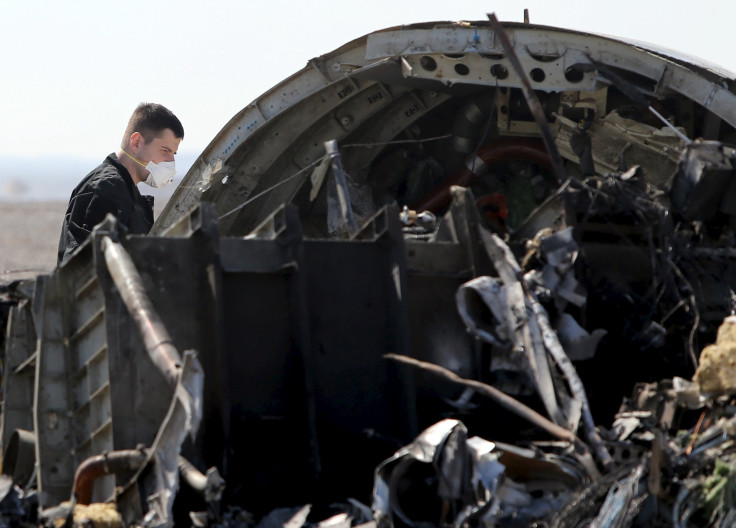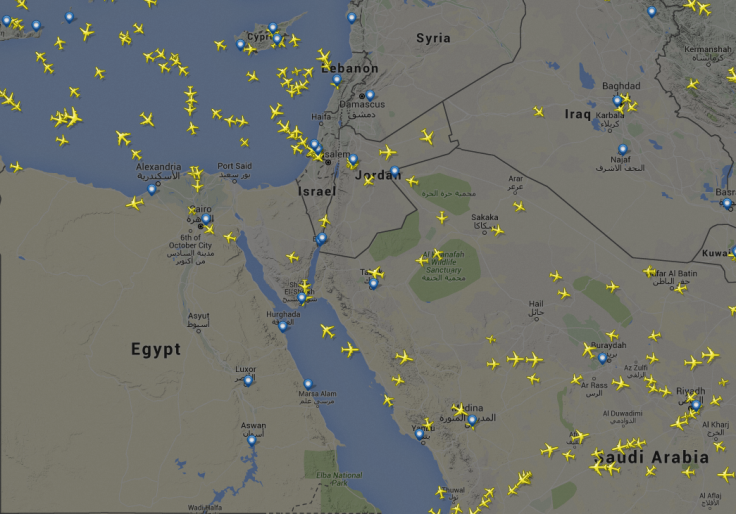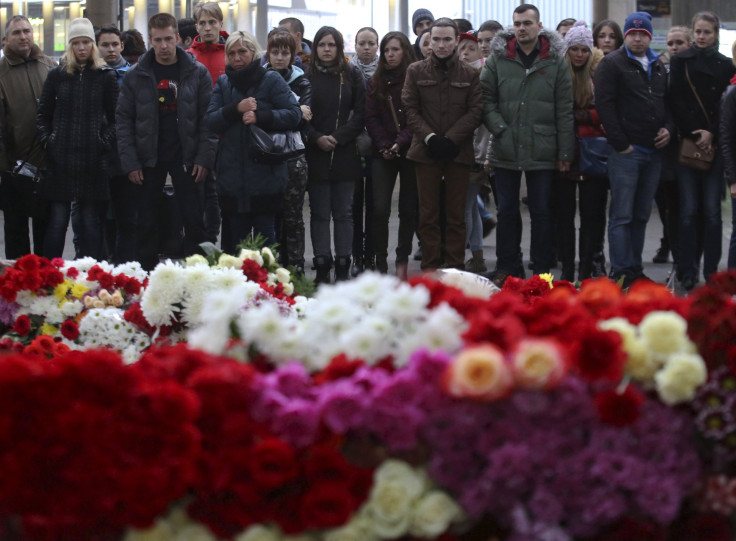After Russian Plane Crash, Airspace, Flight Routes For Airlines Flying In The Region Called Into Question

Russian and Egyptian officials urged caution Thursday over American and British statements it was likely an explosive device planted by a terrorist group that brought down the Metrojet Flight 9268 traveling from Egypt to St. Petersburg Saturday. As investigators continue to work to determine the cause of the crash, which resulted in the deaths of all 224 people aboard, British Prime Minister David Cameron suspended flights to and from Sharm el-Sheikh, again thrusting aviation security and the routes airlines fly into the spotlight.
“There’s no overarching international air traffic control,” said Kenneth Quinn, an attorney specializing in aviation with the firm Pillsbury and a former chief counsel to the U.S. Federal Aviation Administration. “Each state exercises exclusive sovereignty over its airspace.”
Since the downing of Malaysia Airlines Flight MH17 over eastern Ukraine in July 2014 resulting in the deaths of all 298 people aboard, greater attention has been paid to global conflict zones and the routes airlines decide to fly. Quinn noted in the U.S. and Europe, the Federal Aviation Administration and Eurocontrol, respectively, have the ability to close airspace and reroute planes.
Egyptian President Abdel-Fattah el-Sisi told the BBC Tuesday his government had full control of the situation in Sinai. Egyptian government forces have fought Islamic militants in the region for several years with one group, Sinai Province, pledging allegiance to the Islamic State militant group, also known as ISIS.
“The process of conflict zones is that states in whose territory that conflict zone exists has the responsibility to declare it,” said Professor Paul Stephen Dempsey, the director of the Institute of Air and Space Law at McGill University in Montreal.

Both states and individual airlines make decisions about what airspace they will use, with the U.K. invoking its authority over carriers to stop flying to and from the Egyptian resort area. Airspace regulation dates back to 1944, when states signed on to the Chicago Convention, establishing the International Civil Aviation Organization (ICAO), a United Nations body that promulgates practices and standards for international air travel.
While ICAO does not make independent judgments on where airlines should not fly, Quinn explained the organization works as an international clearinghouse with a conflict zone repository allowing states and airlines to make individual decisions on where to fly. Afghanistan, Egypt, Iran, Iraq, Libya, Mali, Pakistan, Saudi Arabia, Somalia, Sudan, South Sudan, Syria, Ukraine and Yemen all currently are listed in the conflict repository with reporting nations explaining their logic for those respective decisions.
Dempsey said even with warnings, airlines have continued to fly over countries, including Iraq and Afghanistan, “despite the fact that those are places where serious conflicts are going on.” He noted it can be hard to decide whether airspace should be closed, with some states not having a firm grasp of the capabilities terrorists groups on the ground.

“It’s not new,” Dempsey said, referring to plane crashes occurring since the 1950s. “Maybe it’s getting more attention because the loss of life with larger aircraft is becoming more profound and I think that states are starting to realize there are a lot of rebel groups that have technology.”
In the case of MH17 and Metrojet Flight 9268, neither Ukraine nor Egypt had closed its airspace prior to the downing of the planes. A Dutch investigation into the downing of MH17 was critical of the Ukrainian government for not closing the airspace. The report noted passengers “should be able to rely on the operator of their choice to have done all that is possible to operate the flight safely and that states have ensured that the airspace used for their flight is safe.”
Germany advised its country’s operators Thursday “not to plan and conduct flights below FL260 into, out of or within the Sinai Peninsula due to hazardous situation.” The advisory will remain valid until January.
© Copyright IBTimes 2024. All rights reserved.






















